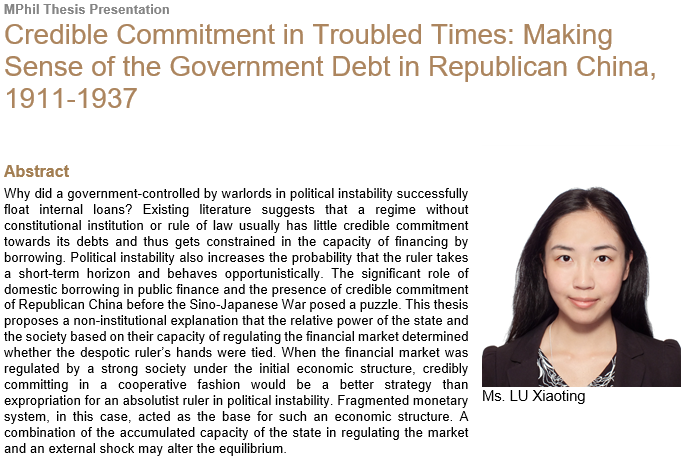Abstract
Why did a government-controlled by warlords in political instability successfully float internal loans? Existing literature suggests that a regime without constitutional institution or rule of law usually has little credible commitment towards its debts and thus gets constrained in the capacity of financing by borrowing. Political instability also increases the probability that the ruler takes a short-term horizon and behaves opportunistically. The significant role of domestic borrowing in public finance and the presence of credible commitment of Republican China before the Sino-Japanese War posed a puzzle. This thesis proposes a non-institutional explanation that the relative power of the state and the society based on their capacity of regulating the financial market determined whether the despotic ruler’s hands were tied. When the financial market was regulated by a strong society under the initial economic structure, credibly committing in a cooperative fashion would be a better strategy than expropriation for an absolutist ruler in political instability. Fragmented monetary system, in this case, acted as the base for such an economic structure. A combination of the accumulated capacity of the state in regulating the market and an external shock may alter the equilibrium.

